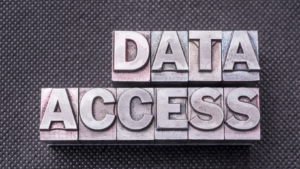In today’s digital age, the concepts of ownership and authorship ethical data have become pivotal. As data drives innovation and decision-making, understanding who truly owns and is credited for data is more crucial than ever. The lines between creators and users blur, raising questions about rights and responsibilities.
Navigating the ethical landscape requires a keen awareness of data’s lifecycle—from creation and storage to sharing and utilization. With the rise of big data, ensuring proper attribution and consent becomes a balancing act between innovation and privacy. Ethical data practices not only safeguard individual rights but also enhance trust and transparency.
As organizations harness the power of data, they must grapple with the challenges of maintaining ethical standards. The conversation around ownership and authorship ethical data isn’t just about compliance; it’s about fostering a culture of respect and accountability in an increasingly data-driven world.
Ownership And Authorship Ethical Data

Ownership and authorship ethical data refers to the legal rights and control harmonized among data originators, collectors, and users. Establishing clear data ownership minimizes disputes and ensures accountability. It also addresses who can modify, distribute, or monetize data and under what conditions. Given the complexity of data ecosystems, legal frameworks like the General Data Protection Regulation (GDPR) provide guidelines on defining and managing ownership rights. Compliance ensures organizations respect data proprietorship while enhancing data utility and security.
Authorship embodies the credit and responsibility attributed to the creators and processors of data. Recognizing authorship promotes transparency and integrity in data usage. This attribution often extends beyond the individual author to include team collaboration or institutional involvement. Acknowledging contributors and their input aligns with ethical publishing practices and fosters trust within data communities.
Importance Of Ethical Considerations
Ethical considerations in data management ensure respect for individual rights and promote trust. Data ownership and authorship play crucial roles in these ethical frameworks. When ownership is clearly defined, disputes decrease, and accountability strengthens, protecting both the creators and users of data. Informed consent is vital in data collection, ensuring individuals understand how their data is used and by whom.

Authorship transparency fosters integrity in data utilization and publication, establishing clear responsibility chains for data-related activities. Such transparency aligns with ethical publishing standards, fostering collaboration among researchers, developers, and institutions. Legal compliance, supported by regulations like the GDPR, enforces ethical practices by mandating accountability and protecting personal data.
Ethical considerations also involve balancing innovation and privacy. While technological advancements enable novel data applications, maintaining privacy is paramount to avoid misuse. Organizations can achieve this by implementing robust data governance, thus upholding ethical standards and earning public trust. Addressing these ethical considerations cultivates a culture of responsibility and integrity in data-driven environments, promoting long-term sustainability and societal benefit.
Key Challenges In Data Ownership
Data ownership comes with complex challenges that involve legal implications and privacy concerns, necessitating rigorous governance approaches.
Legal Implications
Data ownership often intersects with intricate legal frameworks. These frameworks determine rights and responsibilities among stakeholders. The GDPR, for example, establishes stringent rules for data processing, focusing on ownership transparency. Conflicts arise without clear ownership, leading to legal disputes and compliance issues. Consequently, organizations prioritize operational procedures that align with regulatory standards to mitigate risks. Data custodianship frameworks emerge as significant governance models facilitating the responsible use and management of data.
Privacy Concerns
Privacy concerns in data ownership involve the potential misuse of personal information. Data breaches and unauthorized access exacerbate tensions between ownership rights and privacy. Protecting sensitive information necessitates advanced encryption methods and robust access controls. Informed consent ensures individuals understand data usage, enhancing trust and adherence to data protection laws. Balancing utility and privacy remains a challenge, requiring ongoing vigilance and proactive data governance measures to sustain ethical practices.
Authorship In Data Projects

Authorship in data projects involves determining who receives credit and responsibility for data contributions. Ethical authorship practices foster transparency and integrity in data use.
Authors in data projects comprise individuals or entities significantly contributing to the research design, data collection, processing, and analysis. The International Committee of Medical Journal Editors guidelines suggest authorship requires substantial intellectual involvement in project’s conception, execution, or interpretation.

